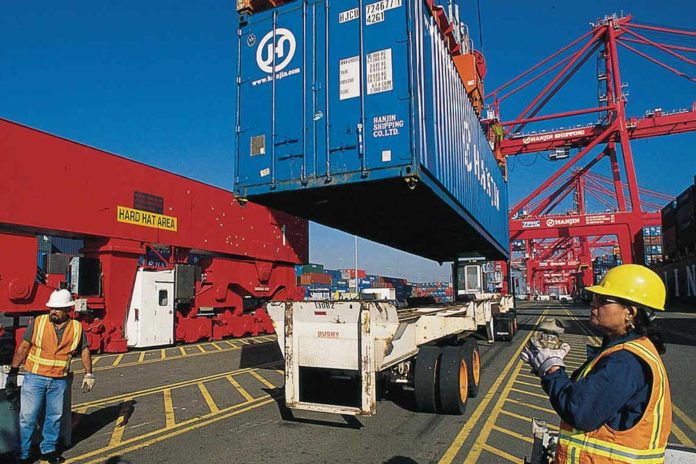
California is supporting the port of Long Beach in its environmental friendly efforts with a grant for zero-emissions equipment.
The Port Authority named it »one of the nation’s largest demonstration projects for zero-emissions cargo-handling equipment«. Now the California Energ[ds_preview]y Commission has announced a Notice of Proposed Award for a $9.7 million grant to the port that would involve the design and creation of 25 new or converted electric cargo handling vehicles to be demonstrated for 12 months.
Involved are the terminals operated by SSA Marine, International Transportation Service (ITS), Long Beach Container Terminal (LBCT), and logistics company Total Transportation Services Inc. (TTSI). The grant, which still requires final Energy Commission approval, would pay for most of the $13.7 million project.
Harbor Commission President Lori Ann Guzmán said the Port is grateful for the Energy Commission’s desire to invest in the project. »We are the Green Port and other ports look to us to set the example,« Guzmán said. »This award is an important step in the Port of Long Beach’s goal of becoming a zero-emissions port. It will go a long way in significantly reducing the amount of emissions generated from operations at the port and make our air cleaner for the communities surrounding it.«
The project is anticipated to reduce greenhouse gases by more than 1,323 tons and smog-causing nitrogen oxides by 27 tons. Also, the switch to zero-emissions equipment is expected to save more than 270,000 gallons of diesel fuel.
It is planned to include the conversion of nine diesel-electric rubber tire gantry cranes into fully electric equipment for SSA Marine terminal, the purchase of 12 battery-electric yard tractors for ITS and LBCT, and the conversion of TTSI’s four underpowered Class 8, liquefied natural gas trucks into plug-in hybrid-electric trucks. These trucks will also be outfitted with a software system that enables them to be programmed to operate only in zero-emissions mode near Port communities.


















